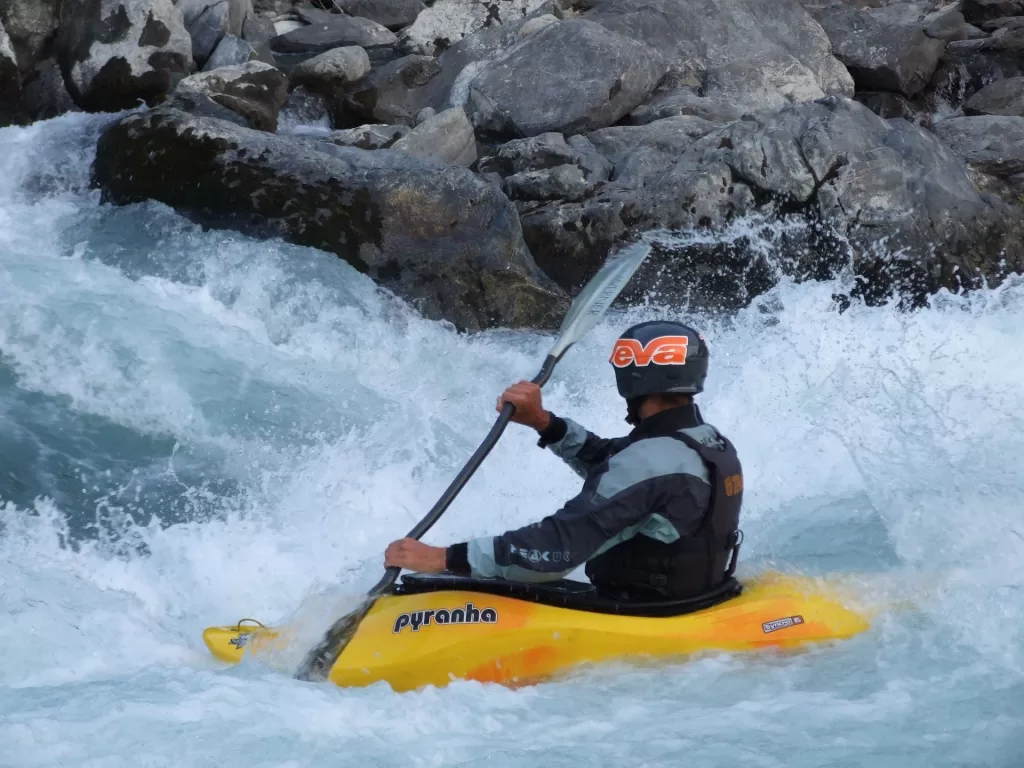One Analogy That Can Save You Time and Energy in Life: Focus on the Safe Water While Paddling
“He who indulges empty fears earns himself real fears.” -Seneca
I had spent hours preparing for the interview: I researched the company, drafted questions I thought they might ask (along with how I’d respond), and prepped questions I wanted to ask them to learn more about the job.
But even though I had put in so much preparation, my mind was focused on all of the things that could go wrong in the interview:
- I could stumble on my elevator pitch of what I’d done in my career.
- I could ramble on too long about one of my experiences.
- I could come off as too junior or unqualified for the position.
- I could mispronounce the interviewer’s name. (I know this sounds ridiculous, but the interviewer had a name I couldn’t seem to get right.)
I was focused on all of the worst possible outcomes. Needless anxieties had distracted me from my ultimate goal of landing the job.
Have you ever taken your eyes off the road while driving — maybe to gawk at a beautiful mountain or an accident on the side of the road — and after a few seconds, you realized that your car had started to veer in the direction you were looking?
Your steering tends to follow your eyes, so if your eyes aren’t on the road, soon the car won’t be either.
I’ve heard the same thing happens with kayakers. While navigating white water rapids, kayakers are supposedly more likely to wipe out if they focus on the gnarliest section of the rapids (what they don’t want to paddle through) than if they focus on the smooth section (what they do want to paddle through).
Your outcome follows your eyes.
Your focus pre-determines your results. By focusing on the positive outcome, you make it more likely to come to fruition.
As I was preparing for that interview, I realized that my eyes were focused on the rapids. And unfortunately, the more I dwelt on potential negative outcomes, the more likely I was to make them occur.
The Same Thing Happens to Professionals
Ian Happ is one of the best players in Major League Baseball (MLB). In 2022, he was selected as an All-Star and also won the “Golden Glove Award” for being one of the top outfielders in the entire National League.
But Happ wasn’t always so successful.
After the Chicago Cubs selected Happ in the first round of the 2015 MLB draft, he spent a couple years in the minor leagues, then got called up to the big leagues in 2017. He had a good first year with the Cubs in 2017, then struggled in 2018, striking out 167 times in 142 games, so the Cubs sent him back down to the minor leagues for a while.
Ian Happ reflected on that time during a recent appearance on The Daily Stoic Podcast, “I was caring more about what the guy who made the decisions thought and got away from my process and what made me a good player.”
“When you worry about the things that might get you put on the bench,” said Happ, “the end result of that is always, you do the things that get you put on the bench.”
Happ was focused on the rough water. He was fearful of getting into a hitting slump. Not realizing his full potential. Getting dropped out of the major leagues.
And unsurprisingly, the worst case happened…because his outcome followed his eyes.
“Your story about who you are and how you see yourself is generally a direct correlation to how you perform in the world.” -Benjamin Hardy
Thankfully, Happ found a way to turn his game around. He learned from his mistakes and used his time in the minor leagues to improve not only his playing ability but his mindset.
As Happ told USA Today, “I think once something like that happens, you learn a lot about yourself. You learn a lot about your baseball abilities and what it takes mentally to get back to that place.”
Two Perspectives We Can Take
Ultimately, there are two aspects of any challenge:
- The Scary Aspect: What could go poorly (e.g., we botch the interview, we strike out, we make a fool of ourselves, we struggle, we fail)
- The Exciting Aspect: What could go right (e.g., we get the job, we hit a home run, we nail the presentation, we learn new things, we become a better problem solver)
Both of these aspects are at play any time we face a new challenge, and we get to choose which aspect to focus on.
You’ll notice that some of the possible outcomes in the “Exciting” list aren’t even related to winning, they’re related to learning. That’s important because we can’t always count on a positive outcome, but we can always guarantee that — as long as we have the right mindset — we’ll learn something new from the experience.
In any situation, you get a choice. The challenge can either become something scary or something exciting.
You can focus on the roughest rapids or the smoothest water. What could go wrong or what could go right. Your nightmares or your dreams.
Just remember: Your outcome follows your eyes.
Want to become a stronger leader?
Sign up to get my exclusive
10-page guide for leaders and learners.




